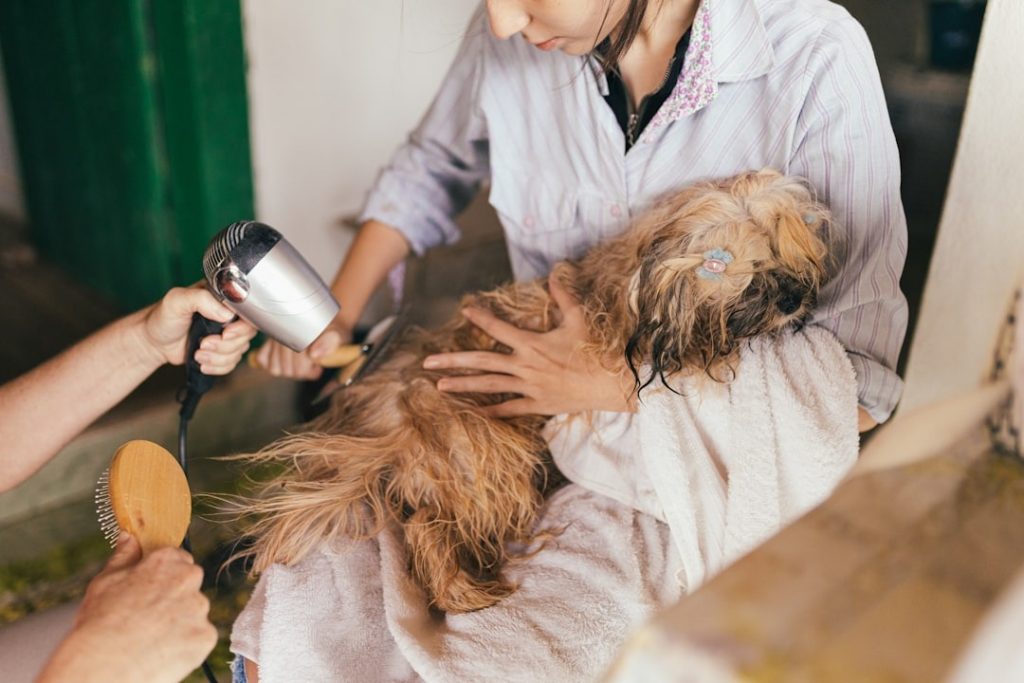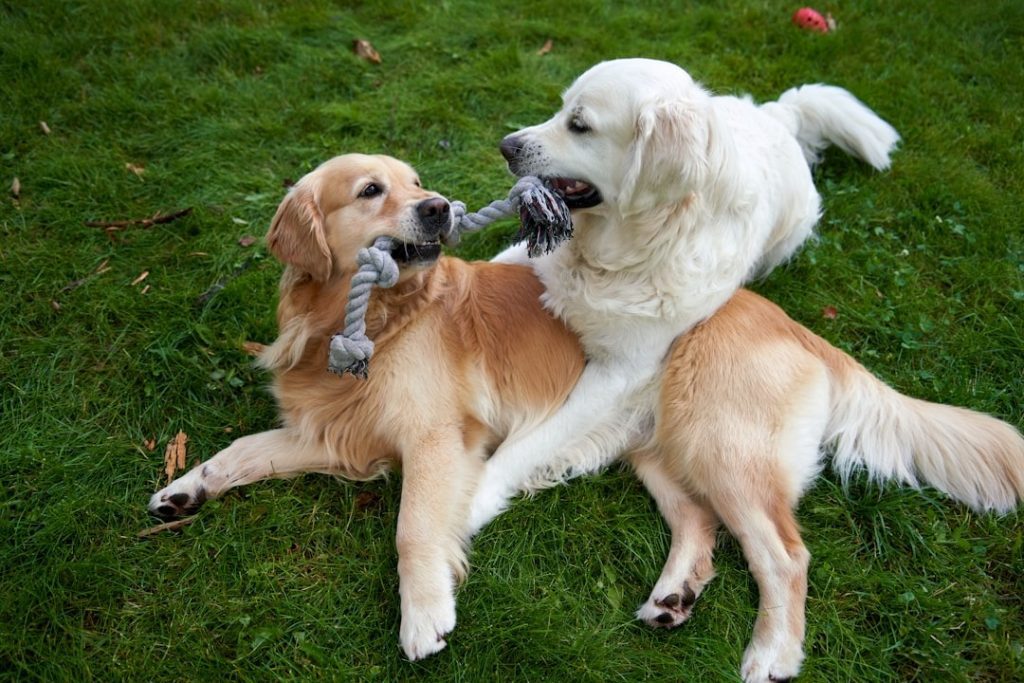Physical Address
304 North Cardinal St.
Dorchester Center, MA 02124
Physical Address
304 North Cardinal St.
Dorchester Center, MA 02124

You know your best friend better than anyone. As they get older, you might notice they’re slowing down, taking more naps, and moving a bit slower. This is a normal part of getting older, but it doesn’t mean their quality of life has to decline. In fact, by creating a simple daily routine, you can make a huge difference in how happy and healthy they are.
A good routine gives your senior pet a sense of security and helps them feel safe. It also lets you stay on top of any health issues, so you can catch problems early. This guide will walk you through ten simple things you can do every day to help your dog or cat feel their best in their golden years.
Before we get to the routine, let’s quickly talk about why your senior pet’s needs are changing. It helps to know what’s going on inside their body and mind.
As pets age, their bodies change in a few key ways:
Your senior pet’s feelings and thoughts also need special care.
By understanding these changes, you can create a routine that helps both their body and their mind.
A great daily routine is all about consistency and love. Here are ten simple things you can do for your senior pet every day.
Give your pet their meals at the same time each day. This helps their digestion and makes them feel secure. Senior pets need special food that’s often lower in calories to help prevent weight gain. The food is also full of good stuff like glucosamine and chondroitin for their joints, and omega-3 fatty acids for their brain and skin. Your vet can help you pick the best food for your pet’s specific needs.
Even if your pet can’t run or jump like they used to, a little daily exercise is super important. It keeps their joints moving, helps them keep muscle, and prevents them from getting stiff. A short, slow walk is perfect. For cats, a quick playtime with a toy they love is great. The key is to keep it low-impact and consistent.
Older pets might not be able to groom themselves as well. Brushing them every day keeps their coat healthy and also gives you a chance to check them for any new lumps, bumps, or strange growths. Pay close attention to their paws, ears, and tail. Catching a problem early can make a huge difference.
Dental disease is a common problem in senior pets and can cause a lot of pain. If you can, brush their teeth every day with a pet-safe toothbrush and toothpaste. If that’s too hard, use dental chews or water additives to help keep their mouth healthy. Watch for signs of dental problems like bad breath or a change in how they eat.
Keeping your pet’s mind active is just as important as keeping their body active. This can help prevent boredom and may even slow down mental decline. Daily games can be as simple as a few minutes of training with commands they already know. Puzzle toys and food-dispensing games are also a fun way to challenge their brain. For more ideas on how to engage your dog’s mind, be sure to check out our guide on mental health enrichment for senior dogs.
Make it easier for your pet to get around the house. Use ramps or pet stairs to help them get on and off furniture. A supportive harness can make walks easier for both of you. Most importantly, provide soft, orthopedic bedding that supports their sore joints. For more help with mobility, check out these great products: Pet Ramps, Support Harnesses, and Support Slings.
Make sure your senior pet is drinking enough water every day, especially if they have kidney or liver issues. You can encourage them to drink more by putting a few water bowls around the house, using a pet water fountain, or adding some wet food to their diet.
If your pet takes any daily medications or supplements, make it a non-negotiable part of your routine. Be consistent. Missing a dose can have serious effects, especially for heart or kidney meds. Set an alarm or use a pill organizer to make sure you don’t forget. To find a variety of supplements that can help, check out these options: Joint Supplements, Omega-3 Fish Oil, Cognitive Support, and more with Probiotics or Multi-Vitamins.
A senior pet needs lots of reassurance. Set aside time each day just for cuddles, gentle petting, or a quiet chat. This makes them feel safe and loved and also helps you check in on their emotional state. Never underestimate the power of just being there.
Senior pets need a lot more sleep than they used to. Make sure they have a cozy, quiet place to rest, away from the noise of the house. Good rest is essential for healing and reducing pain. For the ultimate comfort, you might want to look into an orthopedic bed or a heated mat.

A daily routine is not a strict schedule; it’s a flexible plan that you can change as your pet gets older. Pay close attention to how your pet is acting and what they need.
The routine you have today might not work next year. For example, a walk that was fine a year ago might be too much now. A great routine is one you can change to fit your pet’s needs. It’s your way of saying, “I see you, and I’ll be here for you, no matter what.”
Your pet can’t tell you in words that they’re in pain, but their behavior will give you clues. Watch for these signs that your routine might need to be adjusted:
Many senior pets have specific health issues that need special daily care. Here are some changes you can make to your routine for common senior problems.
If your pet has arthritis, your routine should focus on pain management and mobility. In addition to a special diet and a supportive bed, you can:
These conditions often need a very specific diet and medication routine.
A pet with failing senses needs a routine that helps them feel safe.
Today, there are a lot of great products designed to help you care for a senior pet.
An automatic feeder helps you keep a consistent feeding schedule, even when you’re not home. A pet water fountain can encourage your pet to drink more, which is great for their kidneys. These tools can make your daily routine less stressful.
An orthopedic bed is a must-have for senior pets. These beds are designed to support their joints and can help reduce pain and stiffness. A heated mat can provide soothing comfort for sore muscles. To find the perfect orthopedic bed, check out this great option: Orthopedic Dog Bed.
For mental stimulation, puzzle toys and food-dispensing games are a great investment. They keep your pet’s mind active and prevent boredom and frustration. You can shop for some great options here: Interactive Dog Toys and Puzzle Toys.
Your daily routine isn’t complete without regular vet care. Your vet is your best partner in keeping your senior pet healthy.
Senior pets should see the vet every six months, not just once a year. A lot can change in a pet’s health in a short amount of time. Regular checkups allow your vet to catch issues early, when they’re much easier to treat.
Don’t be afraid to tell your vet about any small changes you’ve noticed in your pet’s daily routine. Mention if they’re limping more, seem more confused, or have a change in appetite. This information is incredibly helpful for your vet in diagnosing and managing any health problems.
Q: My senior dog has started having accidents in the house. What should I do?
A: First, take them to the vet to make sure there are no medical issues like a urinary tract infection. If they are medically fine, it might be a sign of cognitive dysfunction. Adjust their potty schedule to include more frequent breaks and be patient. Never get mad at them for an accident.
Q: Is it okay to let my senior cat sleep all day?
A: Senior pets do need more sleep. But if they suddenly start sleeping a lot more than usual, it could be a sign of pain or a health issue. It’s a good idea to talk to your vet to be sure.
Q: How can I tell if my senior pet is in pain?
A: Pets often hide their pain. Signs can include being reluctant to jump, a change in how they walk, panting when they’re resting, getting irritable when you touch them, or a change in appetite. If you see any of these signs, schedule a vet visit.
Caring for a senior pet is one of the most rewarding things you can do as a pet owner. It takes patience, love, and a consistent, caring approach. By creating a great daily care routine, you can make sure your best friend is comfortable, well-nourished, and happy. Your commitment to their daily well-being is the best gift you can give them, ensuring their golden years are as good as they can be.